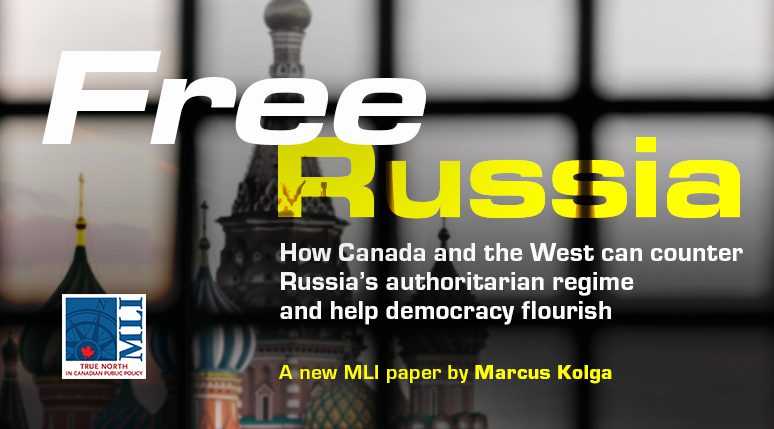By Marcus Kolga
November 28, 2024
Executive Summary
The long-term security of Canada and its allies hinges not only on the outcome of the war in Ukraine but also on the eventual democratization and decentralization of Russia. Vladimir Putin has made no secret of his ambitions for conquest, brazenly seeking to revive a Russian empire through the relentless conflicts he has inflicted upon his own nation. His neo-imperialist aspirations are paralleled by escalating domestic repression, designed to cement his grip on power and enable the kleptocrats who sustain him to plunder the state without restraint. In stark contrast, a post-Putin Russia – a nation that upholds the rights of its citizens, adheres to the rule of law, and respects the sovereignty of its neighbours – is essential for establishing a lasting and durable peace.
This report delves into the current state of Putin’s regime and the forces within Russia that could pose a challenge to its rule. It examines his ruthless handling of dissent in the past and explores the prospects of the current opposition overcoming his violent and oppressive apparatus.
The stakes are high: it is in the collective interest of Canada and the democratic world to see the demise of Putin and his kleptocratic regime. Only then can we hope for a stable and peaceful future, free from the shadow of his tyranny.
Since Putin assumed the presidency on January 1, 2000, Russia has devolved into a near-totalitarian state, where democracy is ruthlessly suppressed and free speech is criminalized. The facade of strength and power that Putin projects conceals a regime steeped in corruption, paranoia, and brutal repression.
Those brave enough to challenge the Kremlin face severe repercussions: arbitrary detention, poisoning, or even assassination. The number of political prisoners in Russia now surpasses those held just before the Soviet Union’s collapse, exceeding the repressive levels seen under Leonid Brezhnev. Thousands have been detained merely for expressing dissent against the government’s policies and its brutal war in Ukraine.
To consolidate his power, Putin has manufactured external threats, waging wars against neighbours like Georgia and Ukraine under the guise of defending Russian interests. He fuels paranoia with baseless claims about Western and NATO plots to encircle and destroy Russia and its culture. Domestically, liberal and pro-democracy groups – including the entire LGBTQ+ community – are branded as terrorists and suppressed. Recent constitutional amendments could keep Putin in power until 2036, dashing any hope for a peaceful transition to democracy.
The sham presidential elections of March 2024 epitomized the regime’s manipulation. Conducted in a tightly controlled environment dominated by state propaganda, the result was a foregone conclusion: Putin secured a fifth term. Meanwhile, opposition figures like Alexey Navalny and Vladimir Kara-Murza have been imprisoned or eliminated. These brutal tactics are designed to crush any hope of opposition.
Yet, there are glimmers of resistance. A growing female-led anti-war movement has emerged, with the wives and mothers of mobilized soldiers protesting the war and demanding the demobilization of conscripted men. Earlier this year, thousands in Bashkortostan defied harsh weather and riot police to protest the jailing of an activist who called the war “genocide.” Exiled opposition leaders are strategizing from abroad, while Russian civil society groups outside the country continue to advocate for democracy. Their work is crucial.
Canada and the West must support these efforts. Backing Russian civil society, independent journalists, and pro-democracy activists is imperative. This includes:
• providing sustainable funding
• pressuring tech firms to combat state propaganda
• enforcing sanctions against enablers of the regime
• and standing in solidarity with political prisoners.
By bolstering the efforts of exiled activists and journalists today, we help lay the groundwork for a democratic future.
Despite the Kremlin’s near-total control of Russia, truth remains a powerful weapon. The international community can help break the regime’s stranglehold by supporting those who expose the regime’s lies and challenge its narratives.
While the immediate prospects for change in Russia appear grim, history shows that authoritarian regimes are not invincible. Putin’s rule will not last forever. The courage of dissidents and independent journalists, combined with growing public discontent and sustained international support from Canada and other Western nations could eventually guide Russia away from its autocratic path. A democratic Russia that respects human rights and its neighbours is not just a distant hope – but a future worth fighting for.
Read the full paper here:







